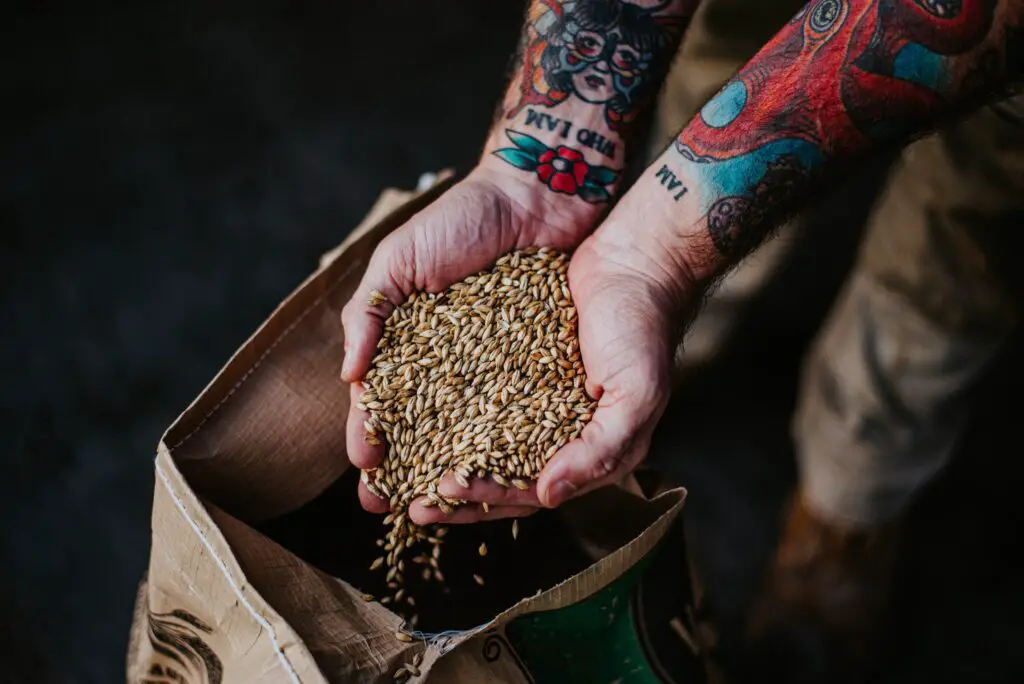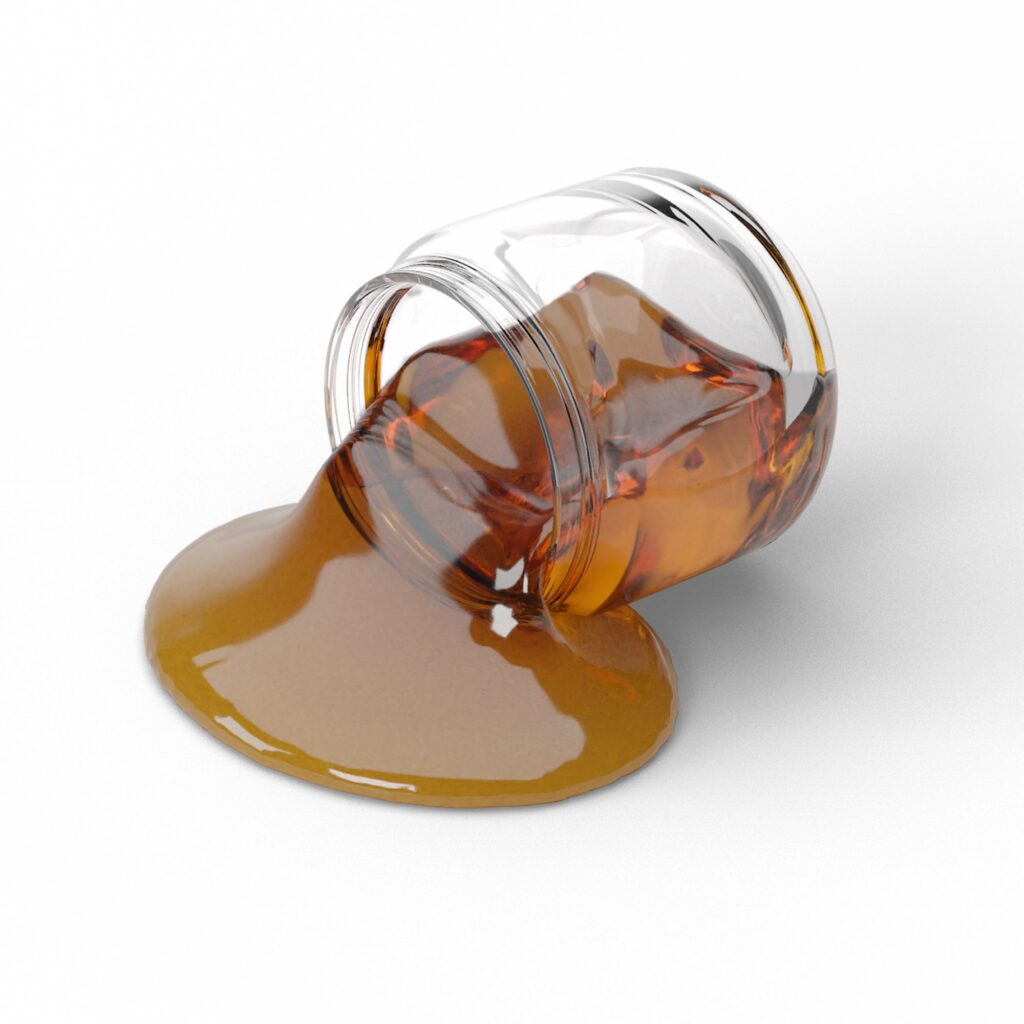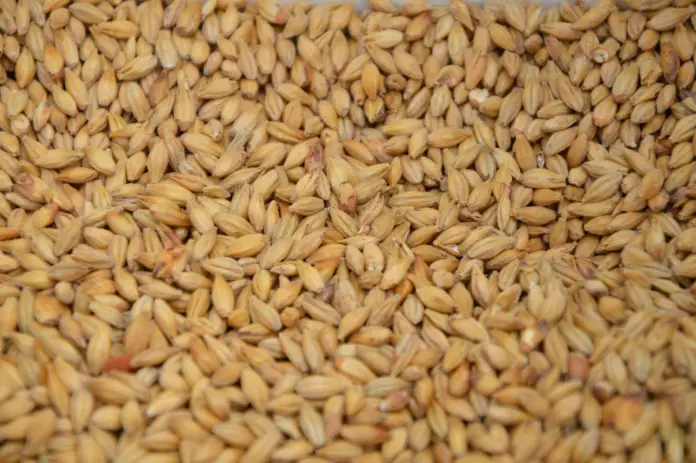Many brewers (beginners and veterans alike) find themselves wondering at some point: is it worth it to take the plunge into all-grain brewing? I myself have thought about this a few times.
All-grain brewing is not necessarily better or worse than extract brewing. While it does provide more control over the recipe, it also creates more chances for error. Extract brewing can save time and frustration, allowing the brewer to focus on the more important steps: sanitation and yeast management.
It’s a little more nuanced than simply saying “you should only brew all-grain beer” or “you should only brew extract beer.” I find that the benefits of all-grain brewing are often situational, and I will decide to brew one way or the other for individual recipes based on a few factors, such as the style of beer or simply how much time I have to dedicate to the craft that day.
This article should clear up some of the pros and cons of both all-grain brewing and extract brewing, and help you to understand when you should do one or the other to create the best beer possible.
Can I Brew All-Grain as a Beginner?
First, let’s get this age-old question out of the way: can you even attempt an all-grain beer as a beginner?
Yes, you can absolutely do all-grain beer brewing as a beginner homebrewer, even with minimal equipment. Techniques such as BIAB (brew in a bag) and using insulating materials can help make it easier to do without special beer-making setups.
All-Grain Brewing seems very daunting for a beginner brewer who does not yet understand how everything works, but it really isn’t that difficult. However, it IS a more complicated process that requires more precision and understanding, and is much more easily done with better tools.
What are the Benefits of All-Grain Brewing?
The biggest reason to focus on all-grain brewing is that it gives the brewer more power over their recipe. You can tweak the mash bill however you want to, pulling fermentable sugars from different ratios of grain types in ways that aren’t readily available in extract form. You can mash at different temperatures to produce different amounts of fermentable sugars. You can even dial in your water chemistry better.

All-grain brewing provides more control over the recipe and the brew day process, giving the brewer the power to potentially create something more complex or nuanced.
Additionally, you can get a variety of different flavors from other mashing techniques such as step mashing and decoction.
This is great for knowledgeable and fussy brewers!
However, for a beginner, all of this can be overwhelming, and can actually provide more opportunity for error. It’s kind of like a double-edged sword: it can be powerful if you know what you’re doing, but you can really mess it up if you don’t.
All-grain brewing is also cheaper on a per-batch scale. You can save some money over many batches by going all-grain, since buying grain (especially in bulk) is quite a bit cheaper than extract.
This means that, if you can afford it, you can produce cheaper beer in the long run by spending more up-front on better equipment that makes all-grain brewing easier.
Or, of course, you can go without the special equipment – but beware of the hidden cost of frustration and time! While all-grain brewing is definitely possible without special equipment, it will be more complicated.
What are the Benefits of Extract Brewing?
Extract brewing vs All-Grain brewing is often described as being similar to baking a cake using cake mix vs. baking the same cake from scratch.
But I want to tell you: I’ve had some amazing cakes that came from a box. One of my favorite cakes has always been my mom’s carrot cake – I can’t even eat other carrot cakes without comparing them to hers!
And guess what? She uses cake mix to make it! Of course, she makes her own additions to the mix, leveling up the original recipe with her own expertise (which is similar to using steeping grains or doing a partial mash).

My point is, you can make great beer with extract brewing, and it can absolutely stand up to or even beat a similarly-made all-grain brew in flavor. Extract beers regularly win in competitions!
The biggest benefit of going with extract, even for experienced brewers, is the time savings (you thought I was going to talk about reducing the complexity?). By using extract, you can skip the mashing step entirely and go straight to the boil, which can save upwards of an hour on your brew day.
Often, brewers can find that, for a standard 5-gallon all-grain batch of beer, they need to carve out more than 5 hours for their brew day! You can bring that time down drastically for some simpler extract-based recipes, and even reduce that time to under an hour just by brewing a smaller extract-based batch.
It does also make the process much easier. While you’re forced to use someone else’s mash bill, and can’t tweak the recipe as you see fit, it allows you to focus on the more important parts of brewing beer: sanitation and fermentation.
After all, it’s not the grain that makes the beer – it’s the yeast!
Then, after you’ve gotten some experience and knowledge, you can level up your brews by upgrading your recipe with steeping grains and doing partial mashes, allowing you to tweak the recipe and add your own twist to the grain bill without adding the complexity of the mashing step on brew day.
When is it Better to Use the All-Grain Brewing Method?
As you get deeper into the hobby, you’ll likely find yourself doing more all-grain brews than not (or even getting all the way into it and never coming back to extract brewing).
But I think there’s a time and place for both methods, and both are powerful tools at a brewer’s disposal.
But it’s important to understand when and why to use one tool or the other.
So under what circumstances is it a better idea to use the all-grain method for a certain batch of beer?
- When you have the knowledge, experience, and most importantly, time, to do the mashing step on brew day
- When you have the skill and desire to tweak a recipe, and come up with a unique grain bill that you want to try out
- When the specific beer style calls for it – some darker, maltier styles of beer are much better with a more complex grain bill, and some almost require extra techniques like decoction mashing to make them as intended.
- When you already have the equipment (or choose to do all-grain without it) and you want to save money rather than time.
When Is It Better to Use the Extract Brewing Method?
As said above, extract brewing can still be a powerful tool to help you make great beer efficiently.
Extract brewing is known for being a first step into the hobby, but even experienced brewers come back to it sometimes. Trust me – it’s so great to be able to still carve out a brew day when life is going crazy and you just can’t find the time.
So when should you decide to do a batch using the extract brewing method instead?
- When you’re just starting out, I strongly recommend you start with extract brewing, so that you can just focus on learning the knowledge and skills to produce a basic quality beer.
- Even when you’re more experienced, if you’re a busy person and have a hard time carving out time to enjoy a brew day, you can use extract brewing as a shortcut to drastically reduce the time you need to spend to make good beer.
- If you don’t have the brewing setup to make all-grain easier (or you simply don’t have access to your equipment for one reason or another), you might find extract brewing more desirable.
- Certain lighter-bodied styles of beer, such as pilsners and lighter IPAs, don’t need a more complicated grain bill, and it can be easier and faster to simply use extract.
Conclusion
It’s generally accepted that extract brewing is a great introduction to the hobby, but brewers often seem to think that all-grain is inherently better – and that once you get to a certain level of experience, you should never go back.
However, there are still benefits to using the extract method occasionally to save yourself time and frustration.
Using the points above as a guide, you can help make a decision when to brew an all-grain batch vs. when it makes sense to take a shortcut and go with an extract batch.
By doing this, you can experiment more, and continue pursuing the hobby, even when life becomes busy!



